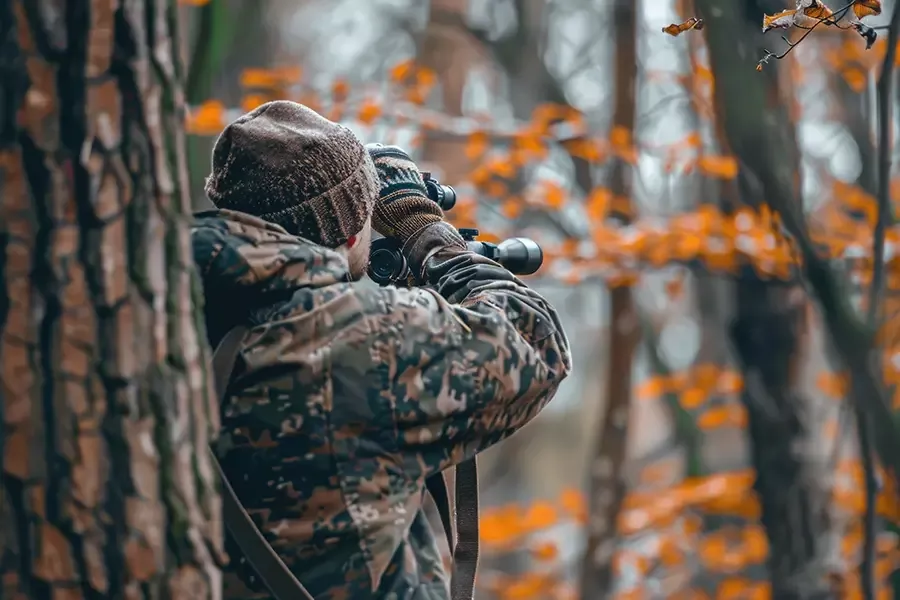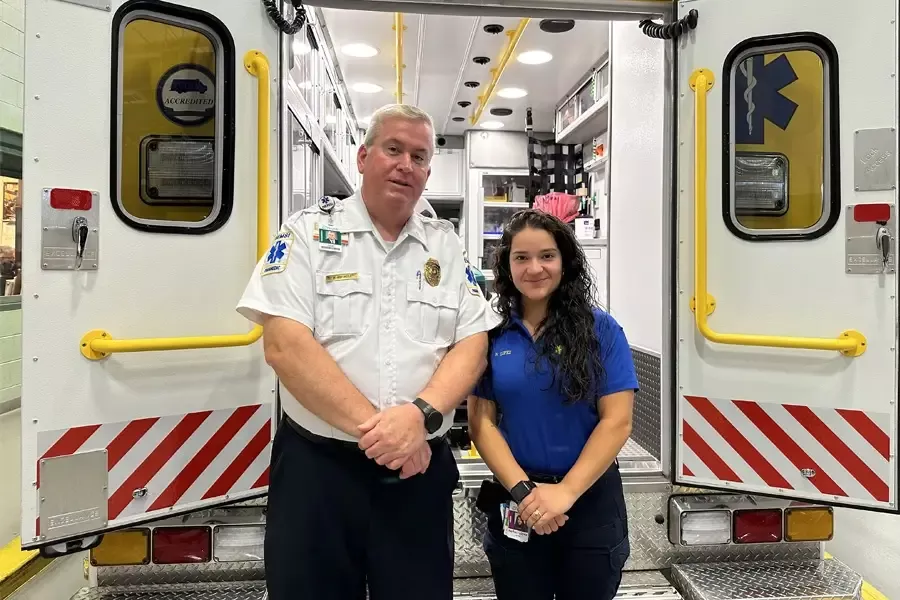
It’s a crisp fall morning, your fingers are numb from the freeze and you’re laser focused waiting for the big one to cross your path. You haven’t moved from your tree stand in hours, and the morning dawn is quickly changing the landscape before your eyes.
Then, you see the 10-point you’ve been after all season. Your heart races as you calmly steady your hand, then the unthinkable happens.
According to the Mayo Clinic, some 3,000-4,000 people are injured each year from falling out of tree stands. Huntsville Hospital’s Emergency Department is no different, and hunting season falls can keep our neurosurgeons busy with spine injuries.
Here are some tips to protect your back while hunting, ensuring a safer experience in the wilderness.
- Before hunting, find a healthy tree for your stand. Healthy trees won’t have holes and should have dense unbroken bark, vibrant leaves and strong branches.
- Make sure you use a five-point harness and strap yourself in correctly to your tree stand.
- Always keep three contact points, which means keep one hand and two feet on the tree at all times while getting into your tree stand.
- Let someone know when and where you are hunting and what time you will be home.
- Avoid risky behaviors like drugs or drinking while hunting.
- Get enough rest the night before. Mistakes happen when people are tired.
- Prepare for hunting season with core exercises to strengthen your spine. Focus on strength training exercises (i.e., back extensions, bird-dog crunch, planks, etc.) that target your core muscles, including your back, abdomen and hips. Strong core muscles provide stability and support to your spine, reducing the risk of injuries.
- Warm up and stretch before. Focus on stretching your lower back, hamstrings, quadriceps and hip flexors. Incorporate exercises like toe touches, standing trunk rotations and lunges into your warm-up routine.
- Keep the weight close to your body, bend at your knees and hips, and lift with your legs rather than your back. Avoid twisting or jerking motions while lifting hunting gear, as they can strain your back muscles.
- Consider using a hunting stool or seat cushion to provide support and comfort during long periods of waiting.
- Maintain good posture. Be mindful of your body alignment and avoid slouching or hunching forward. When sitting or crouching, use your core muscles to support your spine and avoid placing excessive strain on your back.
- When transporting game, use safe carrying techniques to protect your back. Use a cart or game carrier to distribute the weight. If you need to carry game over your shoulders, use a harness or sling to evenly distribute the weight and prevent undue pressure on your spine.
Prioritizing your spine health can help you fully immerse yourself in the hunting experience for years to come.

Dr. Cheng Tao is a board-certified Neurosurgeon at Huntsville Hospital’s Spine & Neuro Center and an outdoorsman.
If back pain is stopping you from doing what you love, it’s time to see a neurosurgeon at Spine & Neuro. You can call 256-533-1600 to make an appointment today.
Click here to learn more about Huntsville Hospital’s Spine & Neuro Center and our providers.


